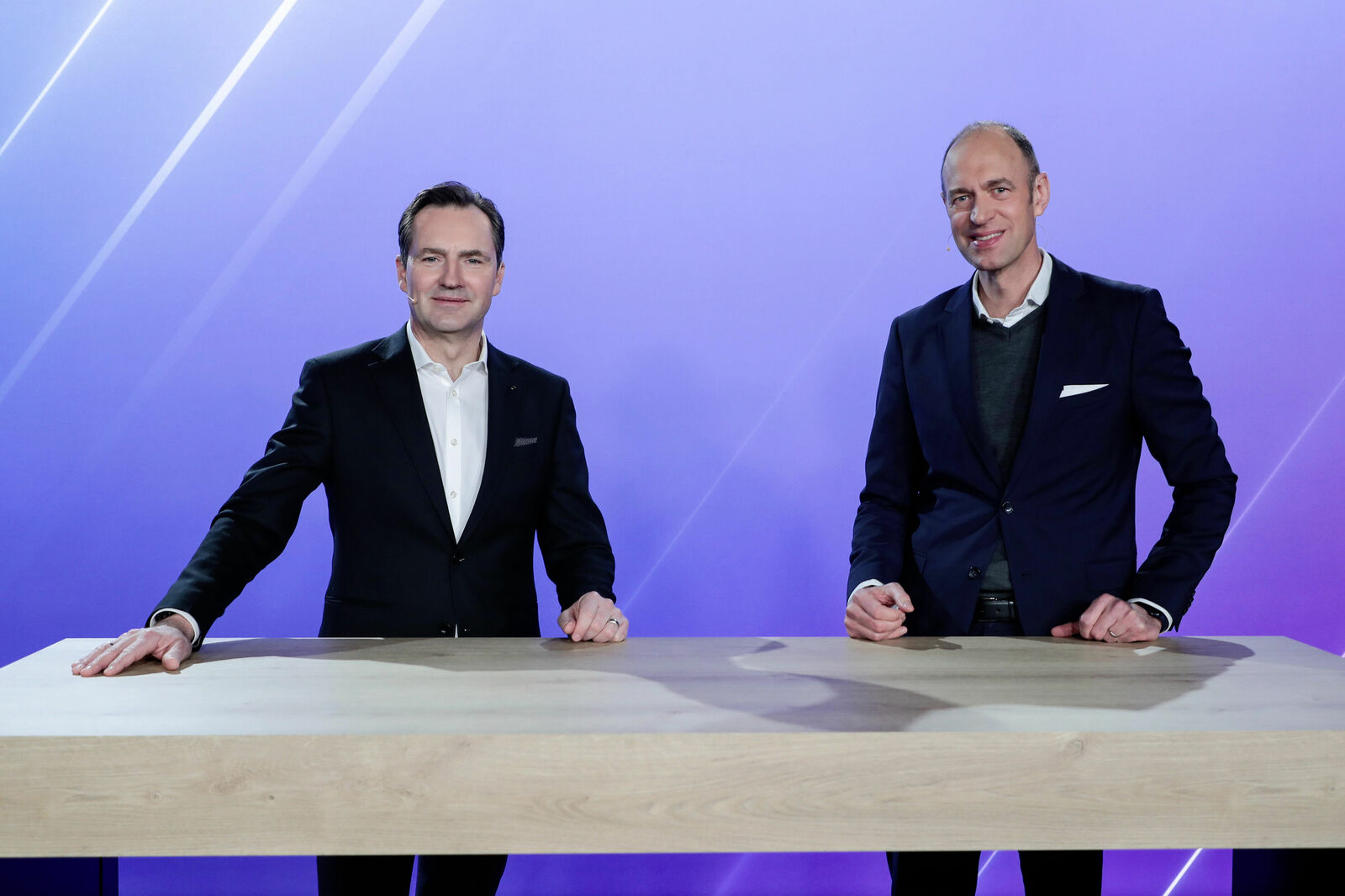- Solid financial base: Operating profit before special items increased to EUR 2.6 billion; operating return rises to 3.6 percent in challenging environment
- Successful regions: High earnings contribution from North and South America – billion-euro investments planned
- Surge in e-mobility: Around 80 percent of Volkswagens delivered in Europe are expected to be all-electric in 2030
- Ten new electric models by 2026, including an all-electric car for under EUR 25,000.
- Volkswagen CEO Thomas Schäfer: “In 2022, we successfully steered Volkswagen through difficult operational waters while at the same time doing our homework at strategic level.”
The Volkswagen Passenger Cars brand further strengthened the company’s profitability in fiscal year 2022. Thanks to effective sales management and rigorous cost optimization, the company generated a robust financial result. Despite the challenging economic situation and the unsettled geopolitical environment, operating profit before special items increased to EUR 2.6 billion and the operating return to 3.6 percent (fiscal year 2021*: EUR 2.2 billion/3.2 percent). Supply constraints and the resulting lower delivery volumes had a significant negative impact on earnings, especially in the second half of the year. The North and South America regions made a large contribution to earnings in 2022, with market share to be robustly expanded going forward. Volkswagen also intends to further accelerate the transformation to e-mobility. The brand anticipates an all-electric share of around 80 percent in Europe by 2030. To this end, ten new electric models are to be launched by as early as 2026, including an all-electric Volkswagen for under EUR 25,000, which makes its world debut today as the ID. 2all study.
At the presentation of the 2022 financial statements, Volkswagen CEO Thomas Schäfer said: “In the past year, we successfully steered Volkswagen through difficult operational waters while at the same time doing our homework at strategic level. The company is well positioned for the decade of transformation and we are implementing our strategy swiftly and consistently.”
Continued sharp focus on cost efficiency
Despite declining deliveries, the brand generated annual sales of EUR 74 billion (prior year*: EUR 68 billion) thanks to an optimized model and pricing policy. Additionally, the brand strengthened its financial base, improving “clean” net cash flow in 2022 to EUR 1,9 billion (EUR 0,3 billion*). The optimization of fixed costs and distribution expenses was among the factors contributing to the good financial result.
Volkswagen CFO Patrik Andreas Mayer emphasized: “The past fiscal year was marked by enormous geopolitical uncertainties, the sharp rise in commodity and energy prices, disrupted supply chains as well as the negative impact of the pandemic in China. Our measures to reduce costs and increase profit had an impact, leading to a robust result given this challenging environment.”
Strong earnings contribution from North and South America regions
The strengthening of profitability in the global regions also continues to prove effective. Mayer: “The ongoing positive trend in North and South America bolstered the brand’s annual results.” Volkswagen sees major growth potential in these and other regions. This is thanks to a product portfolio specially tailored to the markets, coupled with local production. The market share in North America and the USA is to be doubled to at least 5 percent by 2030. To this end, Volkswagen plans to invest around EUR 5 billion in e-mobility and digitalization by 2027. A further EUR 1 billion will be invested in South America by 2026 to additionally boost the company’s market share and kick-start the transformation to e-mobility. Initial market tests with ID. models in South America are already underway.
Volkswagen accelerates e-offensive
In 2022, the company increased global sales of all-electric vehicles by 23.6 percent year on year to around 330,000 units. Volkswagen is now further accelerating the transition to e-mobility: By 2030, up to eight out of ten cars sold in Europe are to be battery electric vehicles (BEVs). The BEV share is to grow likewise in North America, with a target of 55 percent by 2030. In addition, Volkswagen will launch ten new BEV models by 2026. Four new electric models are coming soon: The second-generation ID.3 and the sporty ID.3 GTX, the long-wheelbase ID. Buzz and the flagship ID.7. With the ID. 2all study in the compact car segment, Volkswagen today provides a hands-on preview of the first electric VW for everyone. The starting price is to be under EUR 25,000. Electric vehicles will then be available in almost every volume segment, and the Volkswagen brand will offer the broadest e-portfolio compared with the competition, from the entry-level BEV to the ID.7 electric sedan.
Volkswagen plants creating greater capacity for e-cars
At the same time, the transformation in production at Volkswagen is progressing apace. To be fully converted to electric vehicles this summer, the Emden plant in Germany will produce the ID.7 in addition to the ID.4. Starting this fall, the new-generation ID.3 will also roll off the assembly line at Wolfsburg. The company is investing around EUR 460 million in the transformation of its main plant by early 2025. Its Zwickau and Dresden plants have meanwhile been fully converted, and production of the ID.4 already started last year in Chattanooga, USA.
High order backlog and launch of efficient internal combustion models in 2023
Alongside the new electric models, other attractive products with highly efficient internal combustion engines will be launched in 2023 in line with customer demand in the individual regions: the new versions of the Atlas in North America, the Virtus in Brazil, the Tiguan1 and the Passat. The Volkswagen Passenger Cars brand delivered 4.6 million vehicles worldwide in 2022 (-6.8 percent). Given the difficult supply situation, unit sales fell slightly in the past fiscal year to 2.2 million vehicles (prior year: 2.3 million). The difference between deliveries and unit sales is mainly due to the fact that carmaking joint ventures in China are not included in the Volkswagen Passenger Cars brand.
Demand remains strong both for e-cars and for internal combustion models. Across all powertrains, the order backlog for Europe alone currently exceeds 660,000 vehicles, including almost 100,000 all-electric ID.s. The priority is now on quickly producing the vehicles ordered and delivering them to customers.
Financial figures Volkswagen Passenger Cars
| | 2021* | 2022 | Change in % |
| Deliveries worldwide | 4.9 | 4.6 | -6.8 % |
| Sales revenue(€ billion) | 68 | 74 | +8.7 % |
| Operating profit before special items (€ billion) | 2.2 | 2.6 | +22.5 % |
| Operating return on sales | 3.2 | 3.6 | 0.4 percentage points |
| Operating net cash flow | 0.3 | 1.9 | n/a |
* Structural changes as a result of separating out VW Group Components have led to changes in prior-year figures
Outlook
Volkswagen projects a further significant increase in deliveries of all-electric vehicles in the current fiscal year. CFO Patrik Andreas Mayer: “We are cautiously optimistic that the supply situation will stabilize in the course of the year and are working resolutely on our cost position.” However, Mayer continued, it is anticipated that the current year will see a continuation of the highly challenging environment with regard to supply, commodity and energy prices as well as the geopolitical situation. Due to economic uncertainties and increasing cost pressure, the Volkswagen brand has revised its guidance for 2023 and now expects an operating return before special items of over 4 percent.
Volkswagen’s product pipeline is well filled, as emphasized by Volkswagen CEO Thomas Schäfer: “Customers can look forward to a full lineup of VWs.” Even though 2023 looks set to remain challenging, Schäfer said, “we will not be deterred, but continue to systematically implement our plans for the VW brand and the Volume brand group.”

